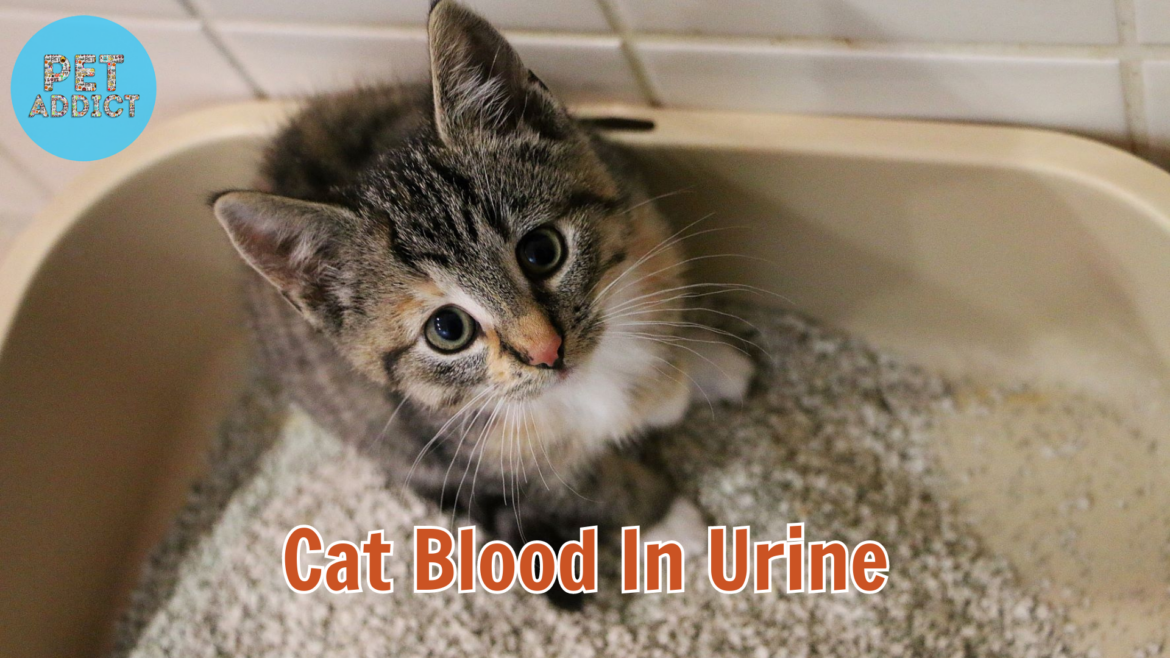Discovering blood in your cat’s urine can be alarming and unsettling. Medically known as hematuria, cat blood in urine is a symptom that can indicate various underlying issues, ranging from minor discomfort to serious health conditions. In this article, we’ll explore the potential causes of cat blood in urine and provide guidance on how to manage this concerning situation.
PetAddict.net – The best place where you can find everything about your pet!
Possible Causes of Cat Blood in Urine

Urinary Tract Infections (UTIs)
UTIs are common in cats and can lead to blood in the urine. Bacteria or other pathogens irritate the urinary tract, causing inflammation and bleeding.
Bladder Stones or Crystals
Mineral deposits in the bladder can cause irritation and damage to the bladder lining, leading to blood in the urine.
Feline Lower Urinary Tract Disease (FLUTD)
FLUTD is a collective term for various urinary issues that can cause blood in the urine. These may include inflammation, blockages, or spasms of the urinary tract.
Trauma or Injury
Injuries to the urinary tract, such as accidents or falls, can result in blood appearing in the urine.
Underlying Health Conditions
Certain health conditions like kidney disease, diabetes, or cancer can contribute to the presence of blood in a cat’s urine.
Identifying the Issue

Observation
If you notice blood in your cat’s urine, closely observe their behavior. Changes in litter box habits, frequency of urination, or signs of pain can provide valuable information.
Seeking Veterinary Care
Contact your veterinarian promptly if you suspect blood in your cat’s urine. A thorough examination, including urine analysis and possibly imaging, can help diagnose the cause.
Managing Cat Blood in Urine

Veterinary Diagnosis
A veterinarian will diagnose the underlying cause of the blood in the urine. This may involve urinalysis, blood tests, ultrasound, or other diagnostic methods.
Treatment Plan
Treatment varies based on the cause. UTIs may require antibiotics, while bladder stones may necessitate dietary changes or surgical intervention.
Ensuring Hydration
Proper hydration is crucial for urinary health. Ensure your cat has access to fresh water at all times.
Follow Veterinary Recommendations
Adhere to the treatment plan and recommendations provided by your veterinarian. This may include medications, dietary adjustments, or lifestyle changes.
Conclusion
Cat blood in urine is a concerning symptom that requires prompt attention. While it can be distressing to witness, understanding the potential causes and seeking veterinary care are essential steps in ensuring your cat’s well-being. By addressing the underlying issue and following your veterinarian’s guidance, you can provide your feline companion with the necessary care and support for a healthy urinary system. Remember, early detection and proactive management play a vital role in maintaining your cat’s overall health and quality of life.




